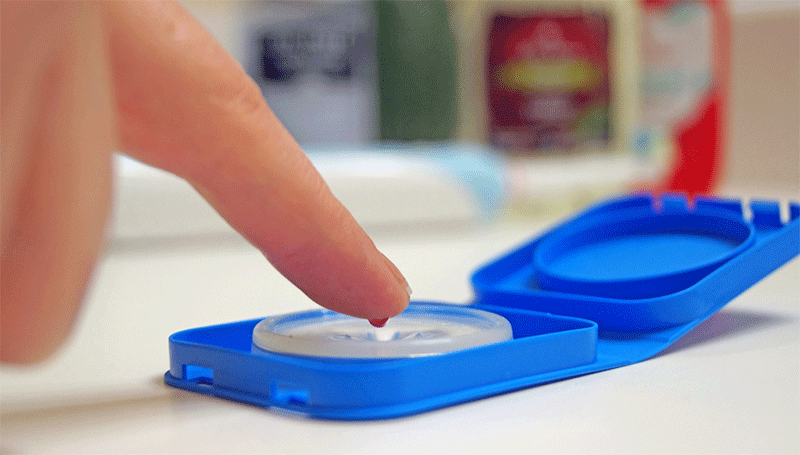New research is first to assess the use of dried blood spot collection in a large national study
In the first study to assess the feasibility of obtaining a mail-in, dried blood spot (DBS) sample from large national surveys in the U.S., results showed return rates differed across racial/ethnic groups and educational attainment. Specifically, Blacks and Latinos, and people with a high school education or below were less likely to return a DBS sample than Whites and those with a college education or above.
The DBS collection device provides a low-intensity method of obtaining a blood sample that can then be used to better assess, verify, and understand alcohol use and its effects on the drinker. Six hundred and eighty eligible participants from two national alcohol surveys were contacted by telephone; 257 (37.8%) agreed to participate and were sent a collection kit. Of those, 179 (69.6%) returned the sample. Participants also completed a paper-based user experience survey (UES) which provided feedback on ease of use.
DBS studies often calculate return rates based on the number of people who agree to participate versus the number who were actually eligible and contacted. This study calculated both.
“We wanted to know how likely it is that people from a general population sample will participate in this type of research,” Priscilla Martinez, ARG associate scientist and first author, said. “While we acknowledge that among those eligible for the study the agreement to participate was low, we found the likelihood of returning a blood sample once people agreed to participate and were sent a kit was high. The results were very encouraging.”
Over 90% of people who returned the kit also completed the user experience survey, giving researchers a more detailed perspective on how the respondents felt about participating in this type of study.
“The main UES finding was that some people, in particular Blacks, were more likely to say they had little to no confidence that they could use the kit to collect their own blood sample after reading the instructions. This suggests the instructions could be improved to be more clear and accessible.”
According to Martinez, the low participation among Blacks and Latinos may be due to a mistrust of health research because of past misuse of biological samples in research studies and the current political climate. There may also be a misunderstanding of what kind of data are being collected and how these data are used.
A lack of participation, especially among groups that are already underrepresented, can further exacerbate already-existing inequities.
“Survey research must try to build greater public trust and address the reasons why people choose not to participate so that all parts of American society feel safe engaging in research. It means we need to be better communicators, both during and after data collection,” Martinez added. “Only then will we be able to understand and address disparities and ensure everyone benefits equally from scientific findings.”
Martinez and her team hopes their study is a first step.
Martinez, P., Zemore, S.E. (2019). Feasibility of a mail-in, self-administered dried blood spot collection method in national, population-based alcohol surveys in the U.S. Addiction: https://www.onlinelibrary.wiley.com/doi/10.1111/add.14603
Support for this paper was provided by the National Institute on Alcohol Abuse and Alcoholism and the Office Of the Director at the National Institutes of Health under award number K01AA024832 (Martinez). The content is solely the responsibility of the authors and does not necessarily represent the official views of the National Institutes of Health.
If you are interested in arranging an interview with Priscilla Martinez, Ph.D., please contact Diane Schmidt, communications specialist at (510) 898-5819 or dschmidt@arg.org.







